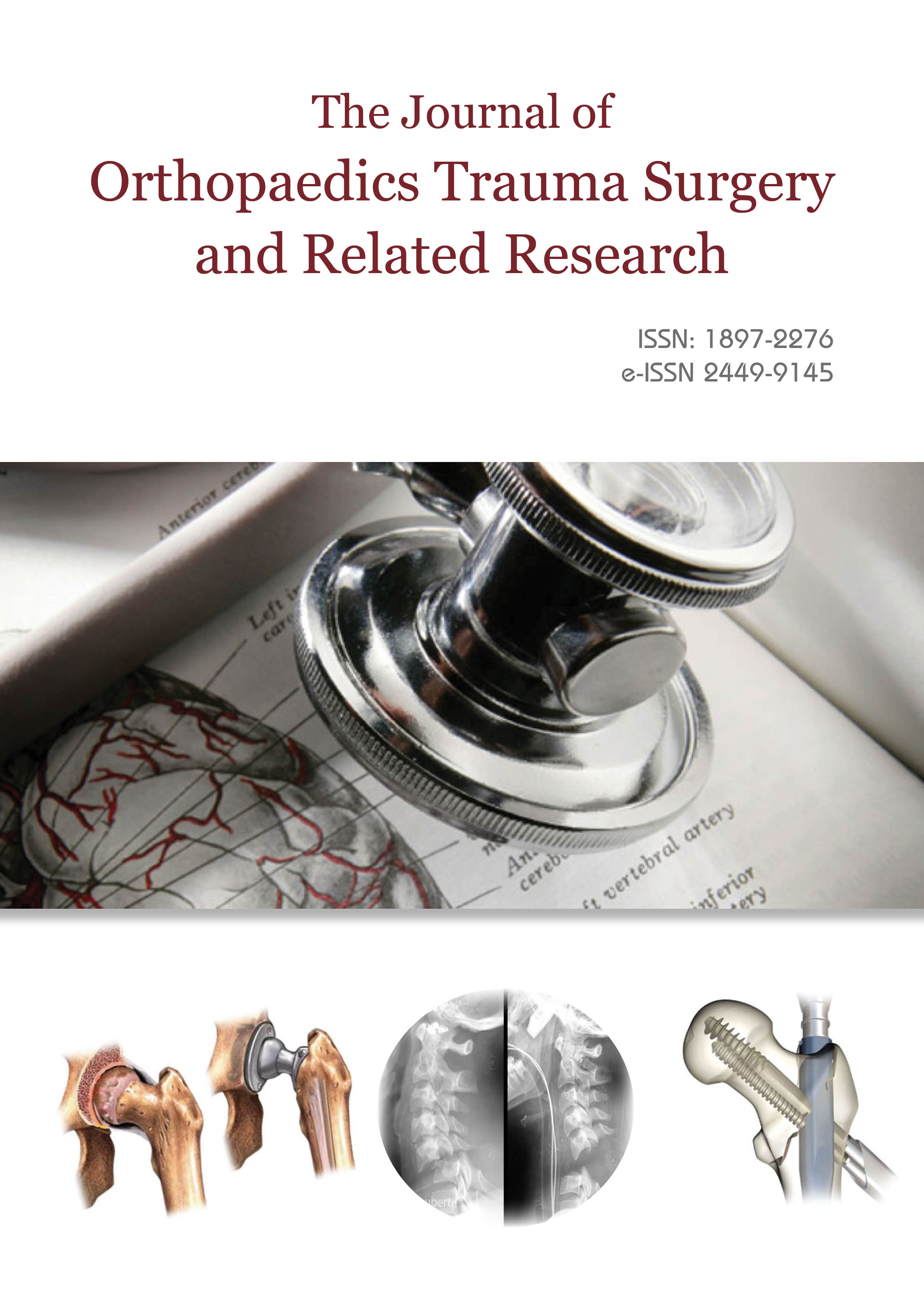Journal of Orthopaedics Trauma Surgery and Related Research

An Official Journal of Polish Society of Orthopaedics and Traumatology
ISSN:1897-2276
e-ISSN: 2449-9145

An Official Journal of Polish Society of Orthopaedics and Traumatology
ISSN:1897-2276
e-ISSN: 2449-9145
Background: Osteoarthritis is a prevalent systemic disease that causes physical disability and diminishes quality of life by affecting all joint structures and surrounding tissues. In Kuwait, knee osteoarthritis is especially common among women. This article aims to share our experience with the staged treatment of knee osteoarthritis at a leading private hospital in Kuwait. Different treatment approaches are employed based on the severity of the condition, patient comorbidities, and age. These treatments range from conservative methods and joint-preserving surgeries in mild to moderate cases to total knee replacement for advanced stages.
Methods: Treatment approaches vary based on the severity of osteoarthritis, patient comorbidities, and age. For mild to moderate cases, conservative treatments and joint-preserving surgeries are utilized. Key steps in conservative treatment include patient education, lifestyle changes, medications, physical therapy, intra- and periarticular injections, weight loss, hydrotherapy, orthotic devices, and braces. When these measures are insufficient, knee arthroplasty is considered the final treatment option.
Results: No evidence-based medical treatment exists to halt or reverse knee Osteoarthritis (OA) progression. Consequently, available treatments primarily target pain reduction and enhanced knee function, which also benefit associated comorbidities. Despite conservative and joint-preserving surgical interventions, nearly all patients ultimately progress to the final stage: total knee replacement.
Conclusion: Early-stage osteoarthritis can be effectively managed with non-surgical approaches, which play a crucial role in preventing disease advancement and enhancing overall quality of life.
Select your language of interest to view the total content in your interested language
 Journal of Orthopaedics Trauma Surgery and Related Research a publication of Polish Society, is a peer-reviewed online journal with quaterly print on demand compilation of issues published.
Journal of Orthopaedics Trauma Surgery and Related Research a publication of Polish Society, is a peer-reviewed online journal with quaterly print on demand compilation of issues published.